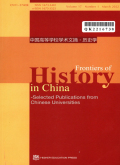On the Establishment of “Farming-Reading Culture” in the Song Dynasty
The practice of combining farming and reading has been followed in China since ancient times. Confucius and Mencius advocated for a separation between them, emphasizing that it was a noble person’s profession to study and serve as an official while it was a commoner’s profession to engage in farming. However, the practice had been adopted by common people, mostly by reclusive scholars and students. In the Song Dynasty (960–1279) which witnessed an economic and cultural boom, this practice became so common that the term “farming-reading” was coined. The most valuable implication of this term was the widespread reading fever among farmers, showing their genuine enthusiasm for education. For many farmers, literacy was a necessity of life, not necessarily for the imperial examination. This was something remarkable distinguishing Song from previous dynasties and a sign of the maturity of the farming-reading culture. Scholars viewed the farming reading practice as a source of joy in life, which contributed to the spread of the farming reading culture. Farming benefited scholars in fostering innovative thinking, acquiring new knowledge, and improving creative writing. More importantly, knowledge and intellectuals played a part in driving agricultural development. The most profound social impact was the promotion of literacy in rural households. The farming-reading culture became an integral part of Chinese culture, exerting a significant influence on people’s thinking and production activities in the dynasties following Song. It indeed enriched the traditional Chinese culture.
farming-reading culture、 Song Dynasty、 way of life、 scholars、 knowledge
19
2024-09-26(万方平台首次上网日期,不代表论文的发表时间)
共22页
1-22




